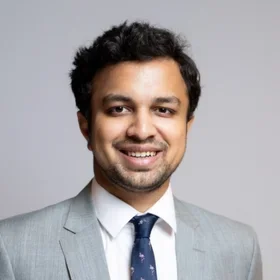Faculty and graduates of the Columbia University Master of Science in Narrative Medicine program describe the relationship between clinical pathways and narrative medicine, and how the principles and strategies of this transdisciplinary field can transform medical practice and the healthcare system — and offer benefits to professionals in other fields.
Danielle Spencer, Ph.D., the academic director of the Master of Science in Narrative Medicine, and a graduate of the program, describes the relationship between stories of individual experiences and health care that is at the core of narrative medicine:
The program is conducted with a mix of different types of students in it, people who have quite varied professional backgrounds, life experiences and goals, and challenges each of us in the room to question our own assumptions and experiences in a fruitful way.
Like many alumni, Sneha Mantri, M.D., M.S., is working to expand narrative medicine education outside academia. She now serves as the director of the program in Medical Humanities at the Trent Center for Bioethics, Humanities & History of Medicine at Duke University, where she hopes to pave a path forward for more medical students to become practitioners of narrative medicine. Mantri is a movement disorder specialist who testifies that narrative medicine has changed the way she cares for her own patients:
The M.S. program has improved my clinical skills: the visual observation and the attention to story as you're giving somebody a diagnosis or talking to them about what this might mean for their family, career, community, and so on.
Cindy Smalletz, M.S., M.A., OTR/L, BCB. graduated from the Narrative Medicine master's program before considering a career as a clinician. She is now the program director of the Certificate of Professional Achievement (CPA) in Narrative Medicine; the program director for the Division of Narrative Medicine in the Department of Medical Humanities and Ethics at the Columbia University Irving Medical Center; and an occupational therapist. Smalletz came from an education and technology background, becoming enamored with the ways in which narrative medicine could change her framing of the world:
I had no idea where the program was going to take me and it was life changing. It used a different part of my brain and I started to see everything differently.
Find more information about the Narrative Medicine Master of Science, and the Certificate of Professional Achievement.
Interested in attending an upcoming Narrative Medicine event? Click here.





